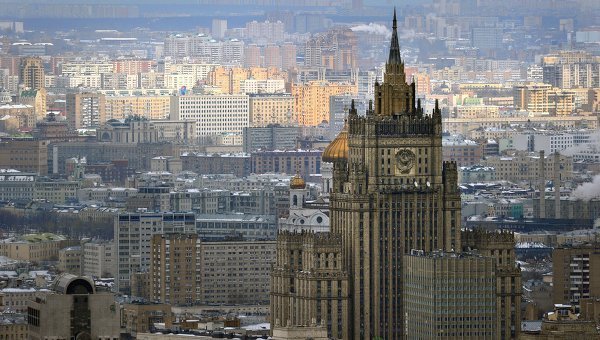MOSCOW, December 23 (RAPSI) – Moscow will continue working to prevent the execution of Russian nationals abroad, RIA Novosti reports on Tuesday, citing Konstantin Dolgov, the Russian Foreign Ministry’s Commissioner for Human Rights, Democracy and the Rule of Law.
The execution of Akhlas Akhlaq in Pakistan has motivated this statement.
Akhlaq was born in Volgograd, Russia in 1981 to a Russian mother and a Pakistani father. He was raised and educated in Russia, but decided to move to Pakistan. In 2003 he was arrested as a suspect in a plot to assassinate former Pakistani leader Pervez Musharraf. Akhlaq pleaded not guilty.
In 2005, he was sentenced to death but not executed because of a moratorium on the death penalty in Pakistan.
On December 17, the moratorium on the death penalty for terrorism-related cases was lifted in the wake of the Peshawar massacre, where Taliban gunmen attacked a school killing 132 children.
Akhlas Akhlaq was executed on December 21.
The Russian Foreign Ministry is working on all these cases, and demanding that a death penalty for Russian nationals not be carried out irrespective of their guilt, Dolgov said.
This Russian position is based on humanitarian considerations and the fact that Russia has a moratorium on capital punishment. Moscow is trying to convince its foreign colleagues to follow suit. Dolgov pointed out that Russia “respects the legislation of the countries where these cases were heard.”
“We are keeping with international law and treaties, and we will continue working in this spirit,” the Russian diplomat said. In the case of Akhlas Akhlaq, all the necessary efforts were taken to ensure “the moderation of his sentence for humanitarian considerations,” Dolgov said. “Regrettably, our appeals did not produce the desired result.”
The laws of some Southeast Asian countries stipulate capital punishment, in particular for drug trafficking.
Two Russians – Alexander Simonov and Sergei Chernykh – have been jailed in Indonesia on charges of bringing drugs into the country. They could have been sentenced to death, but their sentences have been lessened to eight and 11 years’ imprisonment, respectively.
Maria Dapirka, 28, who lived in Thailand, was detained in Vietnam’s Tan Son Nhat International Airport on August 23 after arriving on a flight from Singapore.
Police found several nylon bags containing white powder subsequently identified as cocaine in her luggage. If found guilty of drug trafficking, she could be sentenced to death.



